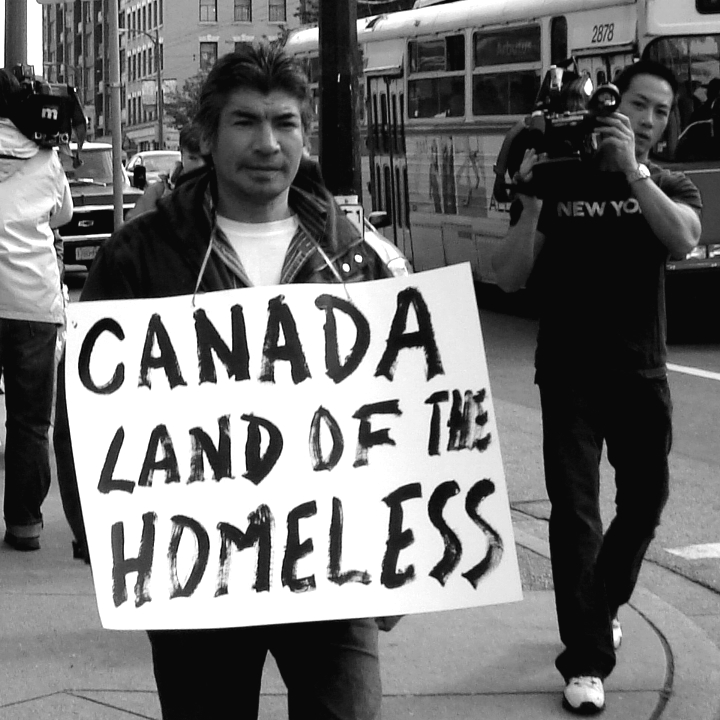AI and ESCR-Net intervene in constitutional case on homelessness in Canada
A three day hearing took place on May 26-28 at the Court of Appeal for Ontario (Toronto) regarding a constitutional case brought by individuals affected by widespread homelessness in that country, demanding the implementation of a rights-based national housing strategy as recommended by the CESCR, the previous Special Rapporteur on Adequate Housing and states under Canada’s Universal Periodic Review. ESCR-Net and Amnesty International intervening as amicus curiae in the case, stressed the courts’ duty to consider Canada’s international human rights obligations while interpreting sections 7 (rights to life and security of the person) and 15 (right to the equality and non-discrimination) of the Canadian Charter of Rights and Freedoms.

At the hearing, Molly Reynolds, representing the ESCR-Net-AI Coalition, argued that Canada should interpret the right to life and security of the person consistently with the right to adequate housing and should certainly not interpret section 7 to offer a narrower protection to the right to life than is offered by article 6 of the International Covenant on Civil and Political Rights. The Human Rights Committee has consistently recognized positive obligations for states under article 6, and in its review of Canada has stated that positive measures are required to address homelessness in that country for compliance with article 6.
Moreover, it was argued that governments must ensure access to housing for groups facing systemic discrimination, including persons with disabilities, women, racialized groups and Indigenous people, who are disproportionately affected by Canada’s failure to implement a housing strategy. Bruce Porter of the Social Rights Advocacy Centre in Canada highlights that courts must interpret rights to life and security of the person so as to provide equal protection to vulnerable groups, who often need positive measures by governments to address systemic violations and failures to act rather than challenges to particular actions or laws. The Canadian government itself has told the UN Human Rights Committee and the UN Committee on Economic, Social and Cultural Rights that the rights to life and security of the person require governments to ensure that no one is denied basic necessities such as housing.
For more information on the written submissions of Amnesty International and ESCR-Net, please go to http://socialrightscura.ca/documents/R2HOCA/AI-ESCR-Net%20-%20OCA.pdf. The Government of Canada’s submissions and other documents are available at http://socialrightscura.ca/eng/legal-strategies-charter-challenge-homlessness-motion-to-strike.html
